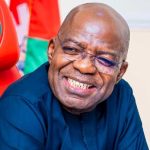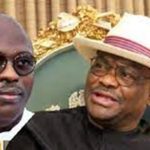Obama Vows to ‘Hit’ North Korea over Cyberattack on Sony
 President Obama said on Friday that the United States “will respond proportionally” against North Korea for its destructive cyberattacks on Sony Pictures, but he criticized the Hollywood studio for giving in to intimidation when it withdrew “The Interview,” the satirical movie that provoked the attacks, before it opened, reports the NewYork Times.
President Obama said on Friday that the United States “will respond proportionally” against North Korea for its destructive cyberattacks on Sony Pictures, but he criticized the Hollywood studio for giving in to intimidation when it withdrew “The Interview,” the satirical movie that provoked the attacks, before it opened, reports the NewYork Times.
Deliberately avoiding specific discussion of what kind of steps he was planning against the reclusive nuclear-armed state, Mr. Obama said that the response would come “in a place and time and manner that we choose.” Speaking at a White House news conference before leaving for Hawaii for a two-week vacation, he said American officials “have been working up a range of options” that he said have not yet been presented to him.
A senior official said Mr. Obama would likely be briefed in Hawaii on those options. Mr. Obama’s threat came just hours after the F.B.I. said it had assembled extensive evidence that the North Korean government organized the cyberattack that debilitated the Sony computers.
If he makes good on it, it would be the first time the United States has been known to retaliate for a destructive cyberattack on American soil or to have explicitly accused the leaders of a foreign nation of deliberately damaging American targets, rather than just stealing intellectual property. Until now, the most aggressive response was the largely symbolic indictment of members of a Chinese Army unit this year for stealing intellectual property.
The president’s determination to act was a remarkable turn in what first seemed a story about Hollywood backbiting and gossip as revealed by the release of emails from studio executives and other movie industry figures describing Angelina Jolie as a “spoiled brat” and making racially tinged lists of what they thought would be Mr. Obama’s favorite movies.
But it quickly escalated, and the combination of the destructive nature of the attacks — which wiped out Sony computers — and a new threat this week against theatergoers if the “The Interview,” whose plot revolves an attempt to assassinate the North Korean leader, Kim Jong-un, opened on Christmas Day turned it into a national security issue. “First it was a game-changer,” one official said. “Then it became a question of what happens if we don’t respond? And the president concluded that’s not an option.”
But as striking as his determination to make North Korea pay a price for its action was his critique of Sony Pictures for its decision to cancel “The Interview.” Mr. Obama argued that the precedent that withdrawing the movie set could be damaging — and that the United States could not give in to intimidation.
“I wish they had spoken to me first,” Mr. Obama said of Sony’s leadership. “I would have told them, ‘Do not get into a pattern in which you’re intimidated by these kinds of criminal attacks.’ ”
In a clear reference to Mr. Kim, he said, “We cannot have a society in which some dictator someplace can start imposing censorship here in the United States.” That would encourage others to do the same “when they see a documentary that they don’t like or news reports that they don’t like.”
The chief executive of Sony Pictures, Michael Lynton, immediately defended his decision and said Mr. Obama misunderstood the facts. He argued that when roughly 80 percent of the country’s theaters refused to book the film after the latest threat, “we had no alternative but to not proceed with the theatrical release,” Mr. Lynton told CNN. “We have not caved, we have not given in, we have not backed down.”
In a follow-up statement, Sony said that it “immediately began actively surveying alternatives” to theatrical distribution after theater owners balked. But so far no mainstream cable, satellite or online film distributor was willing to adopt the movie.
Mr. Obama did not pass up the opportunity to take a jab at the insecure North Korean government for worrying about a Hollywood comedy, even a crude one.







